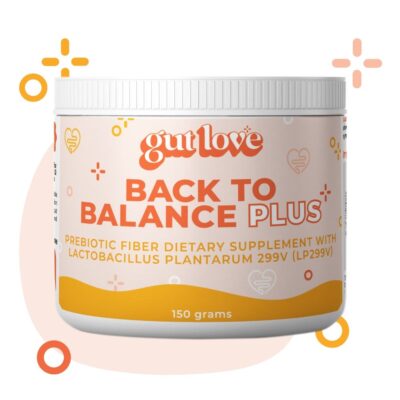In an effort to provide you with high quality information and help you understand your Inflammatory Bowel Disease (IBD) better, we wanted to discuss the why behind nutrient deficiencies. Today we will take a look at why nutrients get low in IBD.
IBD is a chronic illness that affects the digestive tract and presents itself as a relapsing digestive disorder. Roughly 20% to 85% of patients with IBD are malnourished making it imperative to seek dietary guidance from an IBD-focused dietitian (1).
It is common for nutrients to be lower in IBD patients for a multitude of reasons, such as:
- A decrease in appetite
- Active inflammation/malabsorption
- Nausea
- Diarrhea
- Vomiting
- Abdominal pain
Additionally, certain medications that are prescribed to patients either in the induction of remission or to maintain remission can affect certain nutrient absorption and bioavailability. For example, Prednisone, a commonly prescribed steroid can lower phosphorus levels along with zinc and can decrease calcium absorption risking the development of osteoporosis. Other medications to maintain remission include Sulfasalazine which can affect folic acid absorption causing a potential deficiency and anemia.
Let’s take a deeper dive into why nutrients can become low in IBD patients.
Why Do Nutrients Get Low in IBD?
Decrease in appetite
Having a decrease in appetite is characterized by not having the want or choice to ingest food. Common symptoms of a flare-up including nausea, bloat, vomiting, diarrhea, and inflammation alone can all contribute to a decrease in appetite.
Furthermore, when a person has a decrease in appetite, this can lead to nutritional deficiencies due to lack of energy ingested. For these reasons, it is best to find out the root cause of the decrease in appetite to help avoid further complications.
Common causes for a decrease in appetite with IBD:
- Fatigue
- Active inflammation
- Abdominal pain
- Diarrhea
- Vomiting
- Nausea
- Medications
- Feelings of fullness (early satiety)
In many cases, it’s difficult to know exactly what is contributing to the lack of appetite, however working with an IBD-specialized dietitian can provide the necessary support and tools to do so.
Some practical tips to combat lack of appetite include:
- Continue to eat at regular meal times and intervals (~every 3-4 hours) each day
- Use liquid meals to help supplement intake
- Box breath before meals
- Eat with company when able to
- Take breaks to eat meals without distraction
- Enhance meal time experience with music, candles, fun plates, etc.
Weight loss
Having IBD can lead to a host of symptoms including unintentional weight loss. Weight loss can be driven by inflammation, a decrease in appetite, and gastrointestinal symptoms. Weight loss which is a byproduct of inflammation is another reason for nutrients becoming low.
Inadequate intake of vitamins and minerals leading to micronutrient deficiencies can present as a byproduct of weight loss in IBD. Micronutrients provide the body with necessary elements to produce enzymes, hormones, and so much more to keep the body healthy and functioning.
Common micronutrient deficiencies in IBD:
- Vitamin D
- Calcium
- Vitamin A and K
- Magnesium
- Zinc
- Selenium
- B12
- Folic Acid
- Iron
We discussed many of these nutrients in a recent blog post, which you can check out here.
Food Fears
It is all too common for IBD patients to avoid certain food items due to the possibility of causing a “kick-up” in their symptoms. The last thing IBD patients want to feel is any kind of discomfort from the food they consumed.
Dietary recommendations can be confusing for IBD patients as well, which is why we tend to see avoidance or completely restricting a food group to avoid intestinal inflammation and to control their IBD. Restricting and avoidance of certain food groups can lead to malnutrition causing multiple nutritional deficiencies.
Research has shown that avoidant/restrictive food intake disorder (ARFID) is present in 12-21% of gastrointestinal disorders and one study found that 17% of patients with IBD were at an increased risk for ARFID (2). ARFID can cause a decrease in caloric intake along with other factors that can cause nutritional deficiencies thereby increasing the risk of malnutrition (2). IBD patients, as mentioned previously, are more often malnourished making further restriction even more problematic.
Concerns for malnutrition in the IBD population
- Increased hospitalizations
- Increased length of stay (hospitalized)
- Nutritional deficiencies
- Impaired healing from inflammation
- Mortality
- Risk for non-elective surgeries
- Decrease in quality of life
Why do we need to talk about this?
IBD increases risk of nutritional deficiencies and malnutrition. Other conditions including ARFID are common within the IBD community. Active inflammation and avoidance of certain food groups can lead to nutrients becoming too low and thereby causing or perpetuating fatigue, impairing health outcomes, and ultimately making symptoms worse. All of which can prevent patients from having a high quality of life and doing the things that they love.
It is highly recommended for patients with IBD to work with an IBD-focused Registered Dietitian to help correct nutritional deficiencies, build confidence surrounding their disease, heal their relationship with food, help manage IBD symptoms, improve their quality of life, and more.
If you are ready to add an IBD-specialized dietitian to your care team, reach out to schedule a free consultation call. We are currently accepting new clients and would be honored to work with you!
References:
- Balestrieri, P., Ribolsi, M., Guarino, MPL, Emerenziani, S., Altomare, A., and Cicala, M. (2020). Nutritional Aspects in Inflammatory Bowel Disease. Nutrients 2020 Feb; 12(2): 372. https://doi.org/10.3390/nu12020372
- Yelencich, E., Truong, E., Widaman, AM., Pignotti, G., Yang, L., Jeon, Y., Weber, AT., Shah, R., Smith, J., Sauk, JS., and Limketkai, BN. (2022). Avoidant Restrictive Food Intake Disorder. Clinical Gastroenterology and Hepatology 2022;20:1282-1289. https://doi.org/10.1016/j.cgh.2021.08.009







I am an IBD patient for the last 5 years. Please advise. Day by day I am losing weight.
Hi there! It’s hard to advise in the comments section but I’d suggest scheduling a call to talk about working with us.
Schedule a Inquiry call to Work with us ⬇️
https://p.bttr.to/2VpevRX